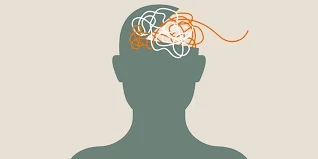Opening:
According to the proverb, change is the sole enduring aspect of existence. However, persons with Attention Deficit Hyperactivity Disorder (ADHD) may find it especially difficult to navigate change. ADHD is a neurodevelopmental condition that is characterized by challenges in maintaining attention, managing impulsive behavior, and controlling hyperactivity. Individuals with ADHD frequently experience heightened levels of distress when confronted with change, as they struggle with effectively navigating transitions and dealing with ambiguity.
This article will examine the specific challenges that people with ADHD encounter when they encounter change and will discuss effective techniques to assist them in adjusting and succeeding in dynamic settings. By comprehending the neurological foundations of ADHD and employing customized coping strategies, persons with ADHD might acquire the ability to view change as a chance for personal development rather than a cause of distress.
An exploration of ADHD and its influence on adapting to changes:
ADHD is a multifaceted neurodevelopmental condition that impacts a significant number of individuals globally. It is defined by impairments in executive functioning, which include cognitive processes such as regulating attention, controlling impulses, and maintaining working memory. These impairments might appear in different forms, such as challenges in task organization, memory lapses, impulsive behavior, and a dislike for interruptions in routine.
Individuals with ADHD frequently encounter difficulties in managing change, primarily owing to multiple factors.
Executive Dysfunction:
The intrinsic deficiencies in executive functioning associated with ADHD provide difficulties in successfully planning, organizing, and carrying out tasks. Consequently, abrupt alterations in their schedule or surroundings can impede their capacity to adjust rapidly.
Sensory Sensitivity:
Individuals with ADHD often encounter sensory processing difficulties, leading to an increased sensitivity to ambient stimuli. Sensory overload can be triggered and intensified by changes in sensory input, such as loud noises or bright lights, leading to an increase in sensations of overwhelm.
Impulsivity, a fundamental characteristic of ADHD, hinders individuals from taking a moment to evaluate situations before responding. This tendency towards impulsivity can result in hasty decision-making when faced with change, frequently leading to unforeseen repercussions.
Emotional dysregulation, a prevalent occurrence in individuals with ADHD, presents a challenge in effectively managing the high emotions that come with change. Individuals may encounter intensified feelings of anxiousness, frustration, or even enthusiasm, which can impede their capacity to adapt proficiently.
Considering these difficulties, it is crucial for individuals with ADHD to cultivate adaptive techniques that specifically address their distinct neurobiological characteristics.
Techniques for Dealing with Change:
Implementing regular and consistent patterns and customs can offer individuals with ADHD a feeling of stability in the face of unpredictability. Implementing regular routines and rituals helps foster organization and anticipation in their lives, facilitating their ability to adapt to unforeseen circumstances.
Divide work into manageable steps:
Individuals with ADHD may find large jobs or projects daunting, particularly when they have tight deadlines or changing priorities. Dividing activities into smaller, more feasible steps might enhance their achievability and alleviate emotions of being overwhelmed.
Employ Visual Aids and Timers:
Employing visual aids such as calendars, to-do lists, and color-coded schedules can assist individuals with ADHD in maintaining organization and monitoring their progress. In addition, the act of setting timers or alarms can serve as subtle prompts, aiding individuals in adhering to their established routines and meeting their deadlines.
Engaging in mindfulness and relaxation techniques, such as deep breathing exercises, meditation, or progressive muscle relaxation, can assist individuals with ADHD in effectively coping with stress and anxiety that arise from changes. These activities enhance self-awareness and emotional regulation, enabling individuals to approach change with a composed and centered perspective.
Obtain Assistance and Foster Communication:
Establishing a robust support system is essential for individuals with ADHD, particularly during periods of transition. Having a support system consisting of friends, family members, and mental health specialists can offer vital counsel and reassurance.
Formulate and cultivate flexible methods for dealing with challenges:
Motivate persons with ADHD to recognize their abilities and cultivate effective coping mechanisms that are most suitable for them. By utilizing fidget toys to direct surplus energy, employing mnemonic devices to facilitate memory retrieval, or imposing self-set deadlines to sustain concentration, individuals can greatly improve their capacity to adapt to change.
Embrace and acknowledge achievements while cultivating self-compassion:
Adapting to change is a process, and it is crucial to acknowledge and commemorate even the most minor accomplishments during the trip. Motivate persons with ADHD to recognize and Treatment their endeavors and advancements, regardless of how small, and cultivate self-compassion at challenging moments or failures.
In conclusion:
Managing change can be a challenging endeavor for those with ADHD, but it is not impossible to overcome. Through comprehending the distinct obstacles presented by ADHD and employing customized coping mechanisms, individuals with ADHD can acquire the ability to traverse change with perseverance and adaptability. There are various tools and approaches that can assist individuals in thriving in dynamic circumstances, such as developing routines, using visual aids, practicing mindfulness, and seeking support.
In the end, adopting change as a chance for personal development and exploration can empower individuals with ADHD to utilize their abilities and conquer challenges with assurance. Individuals with ADHD can successfully traverse life\'s challenges by demonstrating patience, perseverance, and relying on a strong support system.


